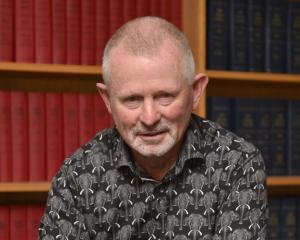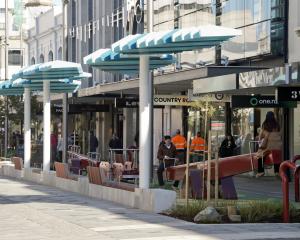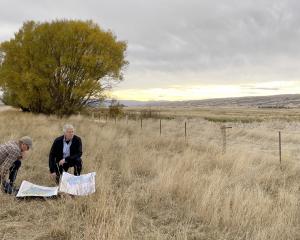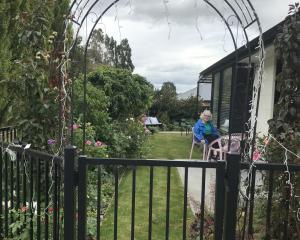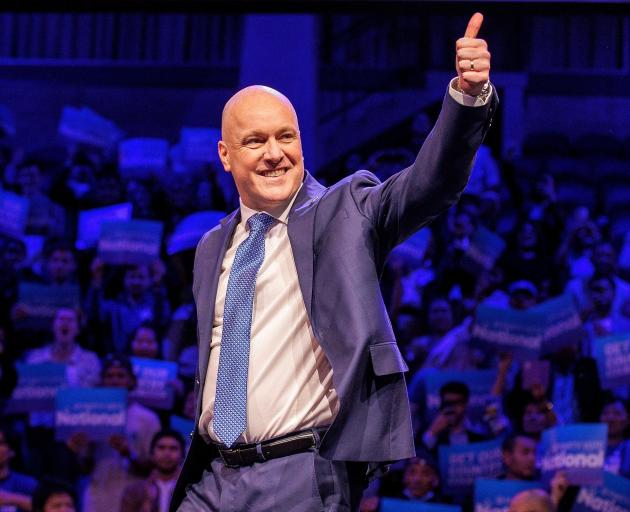
When the Otago Daily Times came calling to the leader of the opposition’s office three years ago, then leader Judith Collins remained seated behind her desk, a ferociously patriotic row of New Zealand flags marshalled behind her.
Ms Collins was in a feisty but defensive mood that day, knowing full well that polling suggested National was facing the prospect of the large landslide defeat which ultimately transpired.
Three years later, new leader Christopher Luxon is in the relaxed frame of mind that only a polling lead can deliver, and heading straight for the couch for a lightning-fast chat about National’s chances.
Mr Luxon has spent a diligent two and a-half years as National leader, dedicatedly learning his talking points off by heart. As befits the top-tier businessman he was before entering politics, he can reel off an impressive spiel of data, details and dollar amounts without second thought.
To his mind, managing the nation’s money is the overwhelming priority for voters in election 2023.
"The election will be focused on economic management. People are very pragmatic and deeply tactical about how do we help them get ahead right now," he said bluntly.
"They are doing it brutally tough. We are about to have a third of New Zealanders refix their mortgages before Christmas, about half of New Zealand households worry about money on a daily basis. You have a record number of people with good jobs on an average income using foodbanks, parents who cannot afford food. That is the dominant issue.
"People are over ideals, people are over transformative language, they are over promises. It is very much about ‘how are you going to help me get out of the hole that I am in?’."
Which is all very well, but being prime minister — as Mr Luxon may very well be in a few weeks’ time — is a broad and multi-faceted job, encompassing things such as diplomacy, promotion of social harmony and crisis management, as well as basic economics.
Although a political outsider with just three years of parliamentary experience under his belt, Mr Luxon said he was up for the challenge.
"Twenty years of career politicians has led to the poor outcomes that we have got in this country. Everything that we have done has gone backwards, every single thing, so I back my leadership experience, getting out results, getting outcomes, turnaround experiences, compared to what I have observed here from the government," he said.
"Having lived and worked overseas for 16 years and having dealt with prime ministers and presidents in other countries around the world, the fact that I know Anthony Albanese well from my previous life having met with him four or five times, and feel comfortable with those relations, that won’t be a problem."
Should National win, Mr Luxon has previously set out, notably in a speech to Business South earlier this year, that he will take a more business-like approach to government.
Which begs the question, what role does he think that the state should play in people’s lives?
Mr Luxon cites the work of psychologist Viktor Frankl and his concept of the three actors in our society.
"He said there was government, which sets the rules and the framework and is the enabler; business, which takes risk and executes well, and we have the community organisations. I think that there has been a parent child relationship between government and the other two, and I think that has to be an adult to adult relationship because they are complementary but play different roles in society and need to work together on the challenges and opportunities that we’ve got.
"For example, we supported this government with an almost $1.9billion investment in mental health and we have found out it went nowhere. We need to take the money from the centre out to the community organisations; they are the ones that are getting results and results are what I want to see."
More practically, Mr Luxon envisages Cabinet ministers as akin to chief executives, with both they and their staff being set — and being expected to meet — performance targets.
"There is a mistake made by governments in believing that money spent is success, rather than results. I come from a different world, and in almost every other part of society it is about results," he said.
"Money is important, don’t get me wrong, but spending more money than the other guy but getting worse results is unacceptable. At the moment this government is spending 80% more but we haven’t had an 80% improvement in outcomes. I believe that we should have better public service targets so that everybody in the public service is really well aware of what they are there to do today.
"If they have come to work at the Ministry of Education they are there to get attendance up and academic achievement up; if I have come into work at the Ministry of Health then I am expecting to cut down wait times in emergency departments and on surgical wait lists, boost immunisation rates, or whatever it is. We are going to have clear targets for the delivery of our public services.
"At the moment we have a lot of activity, a lot of busyness, but not a lot of achievement. They are two very different concepts."
Luxon on:
Community control. "This government tries to operate with centralisation and control; we are a party that believes in localism and devolution."
Lake Onslow. "The CEOs and chairs of our energy companies want to spend $25billion on renewable energy projects, but they are sitting on the sidelines because the government says it wants $16b of taxpayer’s money spent on Lake Onslow."
The economy. "If you manage the economy well, that is now we can invest in better public services and is how we can maintain our first world status."
Housing. "We need to consent and rezone for 30 years of housing growth and not do this drip fed stuff."
■Tomorrow: Te Pati Maori co-leader Debbie Ngarewa-Packer.


